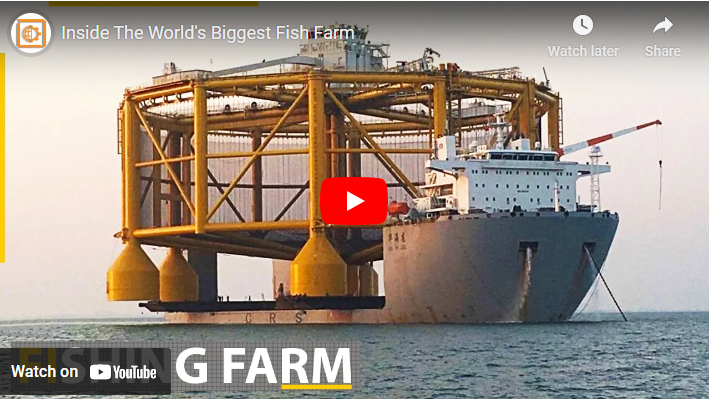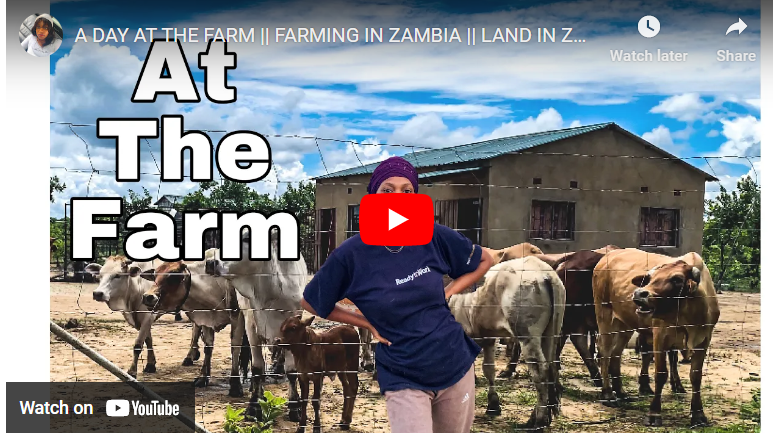If you are looking to explore the aquaculture industry in Africa, you may be wondering which fish farms are the biggest and most successful. This article aims to provide you with a detailed guide to the top 12 biggest fish farms in Africa, along with information on their location, size, and the types of fish they produce.
Aquaculture, or fish farming, has become an increasingly important industry in Africa in recent years. With a growing demand for seafood and declining fish stocks in the wild, fish farming has become a sustainable way to meet this demand while also creating jobs and boosting local economies.
Here some of the top 12 biggest fish farms in Africa and they include Egyptian Fish Farming Company (EFFCO), Lake Harvest Aquaculture, Marine Harvest Ghana, Asmak, and The Fish Company of Africa (FCA), these companies has produce a wide range of fish species and contribute significantly to the continent’s aquaculture industry.
Top 12 Biggest Fish Farm in Africa
1. Egyptian Fish Farming Company (EFFCO)
EFFCO is the largest fish farming company in Africa, with a production capacity of 20,000 tons per year. The company operates in Egypt and produces a wide range of fish species, including tilapia, catfish, and mullet.
Read Also: Top 10 Biggest Fish Farms in Kenya
2. Lake Harvest Aquaculture
Lake Harvest Aquaculture is the largest tilapia producer in Africa, with a production capacity of 12,000 tons per year. The company is based in Zimbabwe and operates on Lake Kariba, which is the largest man-made lake in the world.
Read Also: Top 12 Biggest Fish Farms in USA
3. Marine Harvest Ghana
Marine Harvest Ghana is a subsidiary of Marine Harvest, one of the largest seafood companies in the world. The company produces tilapia and catfish in Ghana, with a production capacity of 8,000 tons per year.
Read Also: Top 12 Biggest Fish Farms in Singapore
4. Asmak
Asmak is a leading fish farming company in Egypt, producing a variety of fish species including tilapia, sea bass, and sea bream. The company has a production capacity of 8,000 tons per year.
Read Also: Top 12 Biggest Fish Farms in UK
5. The Fish Company of Africa (FCA)
FCA is based in Zambia and produces tilapia, catfish, and other fish species. The company has a production capacity of 7,500 tons per year and is committed to sustainable and environmentally-friendly farming practices.
Read Also: Top 12 Biggest Fish Farms in America
6. Regal Springs Tilapia
Regal Springs Tilapia is a subsidiary of Regal Springs, a global aquaculture company that produces tilapia in several countries including Indonesia, Mexico, and Honduras. The company’s African operations are based in Kenya, where it produces 6,500 tons of tilapia per year.
Read Also: 12 Biggest Farming Countries in Europe
7. Oceanic Farms
Oceanic Farms is a leading fish farming company in Nigeria, producing a variety of fish species including tilapia and catfish. The company has a production capacity of 5,000 tons per year and is committed to promoting sustainable and environmentally-friendly practices in the industry.
Read Also: 12 Biggest Farming Countries in the World
8. Pioneer Fish Farm
Pioneer Fish Farm is based in Nigeria and produces tilapia, catfish, and other fish species. The company has a production capacity of 4,000 tons per year and is known for its high-quality fish products and advanced farming techniques.
Read Also: 12 Biggest Fish Farming Companies in The World
9. Premium Aquaculture
Premium Aquaculture, located in Ghana, is a major player in the African aquaculture industry. The farm focuses on the production of tilapia and has a production capacity of 3,500 tons per year. They prioritize sustainability and ensure the highest standards of fish farming.
Read Also: Richest Pig Farmer In The World
10. Fish Breeders Association of Nigeria (FABAN)
FABAN is an association in Nigeria that represents fish farmers across the country. They aim to promote the growth and development of the aquaculture industry in Nigeria. With a vast network of fish farms, FABAN contributes significantly to the overall fish production in Africa.
Read Also: Richest Pig Farmer In Uganda
11. Delta State Integrated Fish Farm
Situated in Nigeria’s Delta State, the Delta State Integrated Fish Farm is a large-scale fish farm that produces various fish species, including tilapia, catfish, and carp. They have a production capacity of 2,500 tons per year and play a vital role in meeting the local demand for fish.
Read Also: Richest Pig Farmer In Zambia
12. Tema Fish Complex
Tema Fish Complex, located in Ghana, is one of the largest fish processing facilities in West Africa. While not a fish farm per se, it is worth mentioning due to its importance in the region’s fish industry. The complex receives fish from various farms and processes them for local consumption and export.
Read Also: Top 10 Biggest Fish Farm Projects in Ghana
What are the benefits of fish farming in Africa?
Fish farming in Africa brings several benefits, including increased food production, job creation, and economic growth. It also helps alleviate pressure on wild fish stocks and promotes sustainable farming practices.
Read Also: Top 10 Biggest Fish Farm Projects in Nigeria
Which fish species are commonly farmed in Africa?
Tilapia, catfish, and trout are among the most commonly farmed fish species in Africa. However, there are other species as well, depending on the region and market demand.
How does fish farming contribute to food security in Africa?
Fish farming plays a crucial role in enhancing food security in Africa by providing a consistent supply of fish protein to meet the dietary needs of the growing population. It reduces reliance on imports and helps ensure access to affordable and nutritious food.
Read Also: Top 12 Biggest Fish Farms in the World
What challenges does the fish farming industry face in Africa?
Some challenges faced by the fish farming industry in Africa include limited access to finance and technology, inadequate infrastructure, and issues related to water quality and disease management. Efforts are being made to address these challenges and promote sustainable growth.
Are African fish farms environmentally friendly?
Many African fish farms prioritize sustainability and employ environmentally friendly practices such as water recirculation systems, waste management, and responsible use of feed. However, there is still room for improvement across the industry.
How can African fish farms contribute to rural development?
Fish farms in Africa can contribute to rural development by creating employment opportunities, particularly in rural areas where alternative livelihoods may be limited. They also support local economies through trade and supply chain linkages.
Conclusion
The aquaculture industry in Africa is witnessing significant growth, with fish farms playing a pivotal role in meeting the continent’s increasing demand for seafood. The top 12 biggest fish farms in Africa mentioned in this article are leaders in the industry, producing a wide range of fish species and contributing to economic development and food security.
As the industry continues to evolve, it is crucial for fish farms to embrace sustainable practices and prioritize environmental stewardship.



